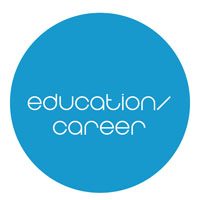

Exploring Occupational Opportunities
Getting Your Education
Learning to Make School Work for You
Planning for College
Getting Career Skills and Experience
Learning to Make School Work for You
Online Self-Assessments and Checklists
From EducationPlanner.org, a public service of the Pennsylvania High Education Assistance Agency
- What's Your Learning Style?
Discover your learning style and find out how it influences the way you understand information and solve problems.
Learning Style Quiz, Tools and Tips
Are you a visual, auditory or kinesthetic learner? Use this inventory to assess your learning preferences and strengths. Then check out tips for building on the strengths of your learning style.
Learning Style Inventory
Use this online tool for evaluating your visual, auditory and tactile learning preferences.
The Homework Help Center
From @TeensHealth.org
Learn the Tricks of Academics
Check out the
Homework Help Center for tips and strategies for making homework
less work, getting organized, and doing online research the smart way.
Teaching Your Brain Academics
Explain It To Your Brain
Excerpts from The Teenage Brain Is Wired to Learn—So Make Sure Your Students Know It by Dr. Donna Wilson and Marcus Conyers published in Edutopia.org on November 8, 2016
Dr. Donna Wilson and Marcus Conyers suggest that learning is about “explaining it to your brain” and becoming aware of how your brain learns best. Here are a few strategies they recommend:
Don’t just read—learn. There can be a huge difference between reading the words on the page and learning from them. Think through what you’ve read. Try:
- Creating diagrams, pictures, and symbols to represent key ideas
- Summarizing passages in their own words (or try putting it in a tweet)
- Searching for cues about the most important content – look for key terms, subtitles, and informational graphics or the use of metaphors and symbols
Consider the source. Who says so? Is the information presented fact or opinion? Is the objective of this resource to inform, to influence, or to entertain? Are the sources cited reputable and qualified to discuss this topic? Making your own judgment.
Create, then edit. Begin by putting in writing the information you want to convey without worrying about how you will word the first paragraph. That task is much easier once you’ve laid out all the content have gathered. Allow time to edit your papers not once, but twice, before turning them in.
Make a schedule—and stick to it. Develop a step-by-step process to complete assignments, set dates to complete each step, and build in extra time for unexpected issues, such as the need to conduct another round of research.
Read ahead to stay ahead. After you finish a reading assignment, read a few pages ahead. This will give you a little bit of context for understanding how the information you just learned can be used.
Discover what study skills work best for you. Do you learn better in study groups, some by creating graphics to explore and connect the concepts, and by reading and explaining the content aloud to yourself? Use your best methods of learning.